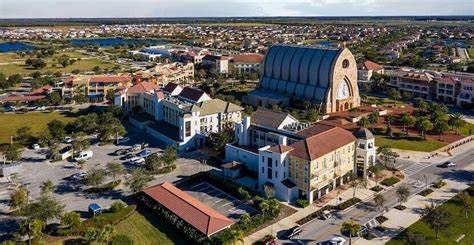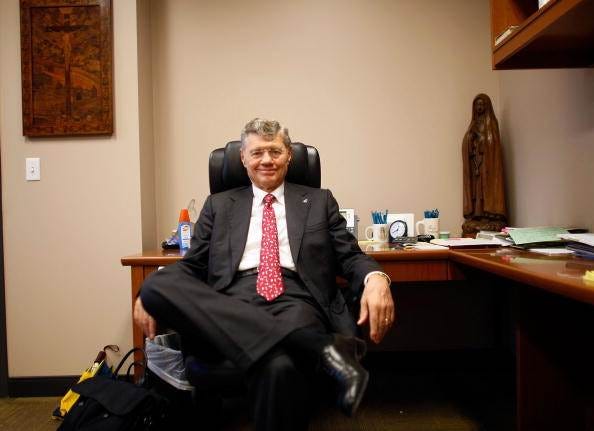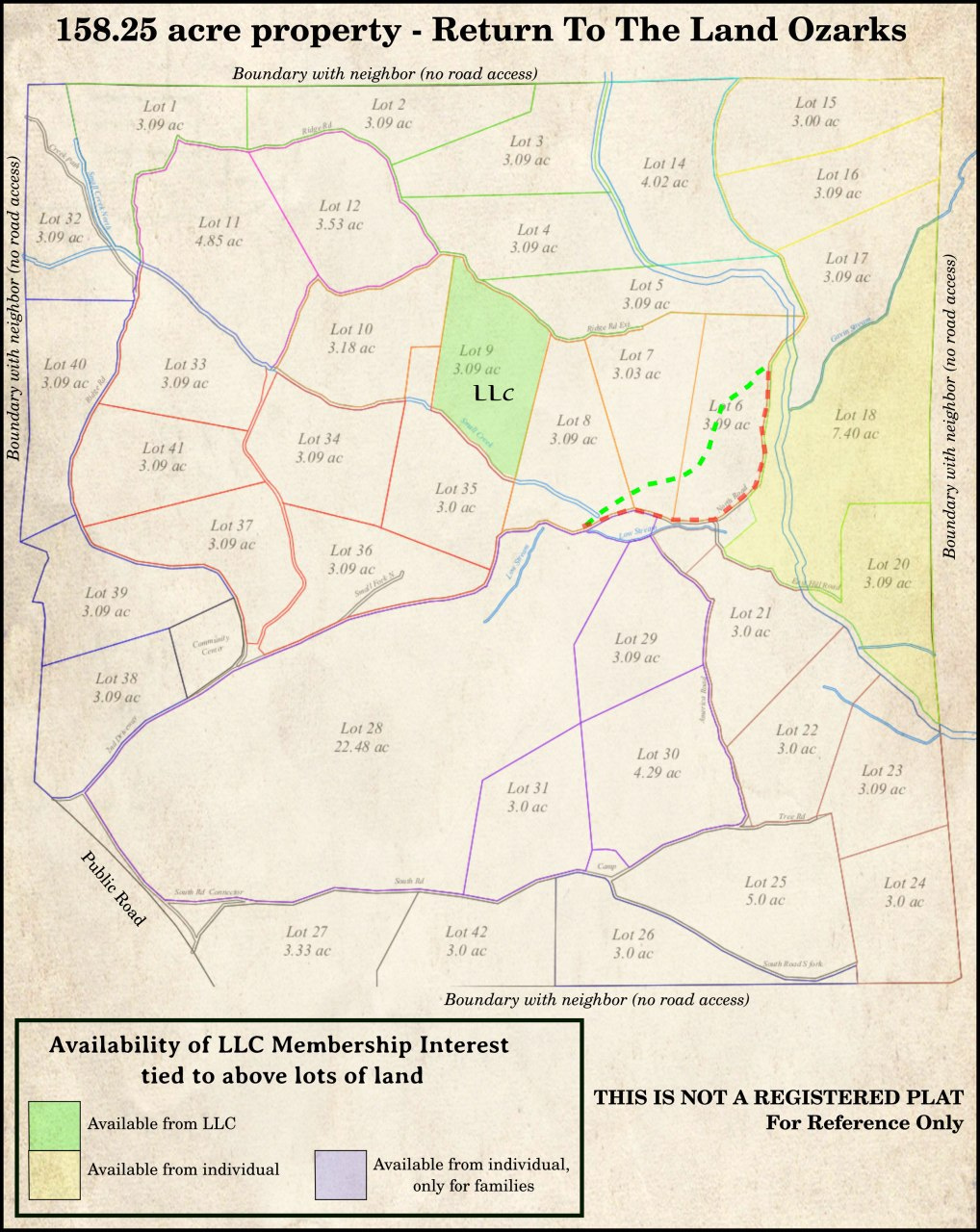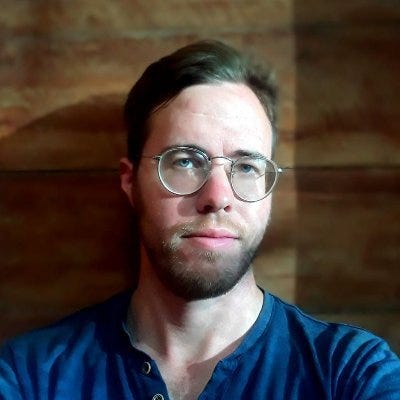I hate constant blackpillers. I especially despise those who have done nothing in their life to justify it. There’s a sense of smug superiority that only serves to demoralize those on the ground getting work done. Worse still, they tend to be the most uneducated to dissident victories while proclaiming themselves intellectual realists.
Hopelessness permeates their every interaction, and solutions stem from eating popcorn and watching the collapse to escaping to some remote area and hope the storm passes over you. Any thought of group cohesion, building parallel institutions, or congregating for as common cause is seen as fed-posting to the extent that the savage demoralization campaign once instigated by our government doesn’t even need to be continued, since our own people will do the work for us.
And my least favorite blackpill masquerading as advice?
“Run away from the cities and buy some land.”
You hear this phrase ad nauseum from the conservative pundit class. There is nothing you can do but run and hide as everything you love is destroyed. As the cities become crime ridden and migrants are flown in en-masse into even medium-sized cities, the classic wholesome image of rural life becomes more and more appealing, a necessary outlet. There's an imagining that we can retreat, homestead, and live a more modern version of the American settler. Now for some this is excellent advice and many have made it work well, especially the ones who have a strong independent streak. If a full nation-wide collapse comes, these guys are going to be in the best position to survive, but considering it the only feasible option is surrender.
However, most people could never make this work. The urge for real-life community is necessary for most, and doesn’t solve the core issue of our deracination, the inability to have neighbors that share your values and power to keep it. Foreigners are imported to undercut the middle class, all the while dramatically changing the demographics of cohesive communities. A diverse, friendly neighborhood of varied people working together in peace hasn’t happened. Instead, everyone has become more insular as volunteering has declined, social traditions have been cancelled, and trust has dropped precipitously. Neighbors are willing to be nice to that Muslim Bangladeshi couple across the street, but the kids are being raised in vastly different value systems, and there’s an implicit understanding that if everything went belly-up, tribal loyalties trump the friendly neighbor.
While this Substack is often pessimistic, I make an effort to advocate a way forward while acknowledging our current situation. With our national political landscape becoming ossified and unmoving, effective democratic action becoming a pipe-dream, alternative ideas are beginning to form. Plans are arising outside the common conservative tropes figuring out new frameworks, LEGAL frameworks, that use the codes embedded in law to our own advantage and regaining lost freedom.
The most important freedom to regain is association, and it isn’t even close. The minute you are forced to include everybody, any sort of structure outside the purview of general society is next to impossible. Community necessitates not only letting people in, but keeping people out. It’s the basic building block of a unique and cohesive identity. It’s why not everyone is invited to your family Christmas, not everyone is invited to your company board meeting, and not everyone is invited to your wedding. It’s a filtering mechanism that allows who you want in, and who you want out. That men’s private clubs have been systematically destroyed is no coincidence. Nor is it a coincidence Churches under increasing infiltration and corporations are terrified of a DEI commissar coming from Washington D.C. to sue them into oblivion.
As the civil rights revolution has hollowed out this fundamental freedom, new foundations have been formed to work inside the legal framework to restore our rights.
“Soft” Freedom of Association: Ave Maria Town
As Elon Musk has shown, there's incalculable value in having an eccentric billionaire on your side. Outside of money, there's the prestige and ability to coordinate vast resources to a common goal that makes it essential for any fledgling movement. In our hyper-financialized culture, power rests largely on the money-men, the entrepreneurs. Such a man is Tom Monaghan.
Tom Monaghan’s impact on the Catholic sphere of the United States can not be understated. Gaining his riches founding Domino’s Pizza until her sold it to focus on his charities in 1998, he is the founder of Ave Maria University, Ave Maria Law School, Ave Maria Radio, and countless other philanthropic organizations. A Catholic of the charismatic variety, the Church he built in Ann Arbor next to Domino’s farms is famous for its exuberant, emotive liturgies. His past is a classic rags to riches story of a man who made it in the Land of Opportunity.
His continuous philanthropic work is one of the few cases where money actually created long-standing institutions and driven by elevating society instead of driving it to chaos. A strong-willed, passionate man, he’s made plenty of enemies, and plenty of mistakes, but forges ahead with a unrelenting will.
Even more than the University, his vision of a Catholic town is, by far, the most controversial of his endeavors. Originally thought up in the early 2000’s, it quickly created a stew of controversy by being unapologetically Catholic, with the expectation its residents are the same. He envisioned a large Church as the physical and spiritual center of the town. He would also build a quaint, pleasant shopping center surrounded by homes with large families, a sort of oasis from the tumultuous larger world. Catholics would raise kids in one’s own beliefs with the larger community supporting them. Given he’s funding the town, he wanted unprecedented say in how it has run, leading to the usual suspects from neckbeard atheists to the ACLU throwing a hissy fit that people would live in a town that didn’t perform abortions, sell pornography, or even have contraceptives available.
After this historic day a series of statements followed. First, this one from the ACLU of Florida, warning the people of Collier county, quote, "You're in for a whole series of legal and constitutional problems and a lot of litigation, indefinitely, into the future."
In the mind of the Regime, people voluntarily living in such a community was against the rules, because human rights or something. As development went into fruition, he abandoned many hard-line stances, focusing more on voluntary compliance through soft pressure tactics. For years on the path to disaster, the community survived and is now fully developed, with plans to expand it even further. It has still kept its core Catholic identity but has necessitated some compromises with the outside world.
Despite the Catholic focus in this Florida community, people of different faiths can also live in the town, in fact, in 2017 the first Baptist church opened. Monaghan's original idea of imprinting the Catholic culture on Ave Maria in such a way that there would be no way to separate from it was abandoned long ago, and today the entrepreneur says Ave Maria is open to everyone.
Given the relentless smear campaign, coordinated by powerful interests, it might have been the only way forward. Remember when he originally envisioned the project, there was far stronger alignment between the Regime’s different factions, and far more cohesion to assert their will. While ideologically the elite classes are more consolidated than ever, massive cracks are showing with internal power struggles and infighting for a diminishing piece of the pie. This along with a failure of competence has resulted in a mass of empty ideological signaling but have far less ability to squash the pockets of resistance who are becoming cleverer in avoiding their subversive ideas.
While the town is not nearly as aggressively cohesive Monaghan envisioned, it still managed to survive the massive hurdles of the first couple decades of development and is now expanding. Sometimes you can’t have everything, but this successful proof of concept will let others know what people are capable of.
The town is an interesting case study. It does not directly inhibit who can enter the community, but the founder’s strong hand makes only a certain set of people interested. Because of adherence to Catholic social teaching and the aggressive soft pressure of the people there, those of different ideological persuasions simply will not want to live there, creating a self-sorting mechanism. Even though other churches are technically allowed and there are public schools, the type of population moving to such a town will innovate their own ways of maintaining the culture they prefer.
“Hard” Freedom of Association: Return to the Land
With the illegality of covenant contracts in housing and the troubles of Monaghan’s Ave Maria, it would seem the ability to vet people entering a community is limited to non-existent from a wholly legal standpoint. Outside of a mafia-like organization outside the purview of the law, options feel limited. There seems no way around large legal compromises would need to be made for organizing a parallel society, one that would make infiltration a constant threat.
Perhaps this isn’t true, though. Peter Csere of Return to the Land had a different strategy, and made creative use of business law to design an airtight way to build a society with fully vetted people in it.
His Mission Statement reads:
RTTL: Ozarks Chapter has developed a unique form of land ownership, similar to that of Orania in South Africa.
We created a private neighborhood, owned by the members of an LLC, and managed according to the LLC Operating Agreement. Each member is allocated a piece of land according to their percentage of ownership in the LLC. There are basic rules to prevent serious nuisances, while allowing for normal agricultural and residential activities.
I learned about this group through a comment on an article I wrote.
The user directed me to a
interview where Peter outlined his organization. This is not the work of a multimillionaire with a business empire, but men with grassroots organization and vision who found a viable model for creating a community they desire. It involves setting up the town as an LLC, where the members, instead of owning something outright, own a stake in the company that gives them the right to a home in the community.Instead of buying a house directly, you buy a stake in the company which translates to control of a parcel of land for residency. Only members of the LLC can buy stakes, and members of the LLC have first selection in buying the residence in the event of the stakeholder selling his share.
For those reading this, it sounds a lot like an anarcho-capitalist state, and they wouldn’t be wrong. For once libertarian philosophy has thought of something useful. Note this is hardly the model of a factory town where everything is beholden to the company and people can be expelled on a whim, and a large amount of freedom is allowed to the members, more than most have within a HOA. The only real limitation is their ability to sell their homes in the mass market, requiring them to sell their stakes to another member, as is necessary for a closed community to maintain itself. The strategy is a clever work-around of existing law to ensure only the people you want can have a stake, and therefore be your neighbor.
The LLC contract is located here. The first, most important aspect, is how members are onboarded. The lack of requirements is stark, as all it says is that 2/3rds of people on the board have to agree. In other words, it’s up to the elites in the community to decide who is a good fit.
Another important aspect, dealing with the bad behavior of a member, is handled in a similar fashion.
These people know the friend/enemy distinction and have a strong awareness of busybodies and entryists that will attempt to destroy them. The forced-buyout is a way to ensure bad actors can’t gain ground in the organization, or as Hans-Hermann Hoppe puts it:
“In a covenant...among proprietor and community tenants for the purpose of protecting their private property, no such thing as a right to free (unlimited) speech exists, not even to unlimited speech on one’s own tenant-property. One may say innumerable things and promote almost any idea under the sun, but naturally no one is permitted to advocate ideas contrary to the very covenant of preserving and protecting private property, such as democracy and communism. There can be no tolerance toward democrats and communists in a libertarian social order. They will have to be physically separated and removed from society.”
What’s fascinating of the level of scalability as well as copycatting that contracts like this encourage. Peter Csere likened it to a piece of software that can be run anywhere, with the minor bug fixes and maintenance that comes over time, but the core part of the program being the same. There is no reason you could not make an LLC like this anywhere. This particular group is deep in the Ozarks, but there’s no reason this can’t scale to towns, the suburbs, inside the city, etc. There’s no reason to designate this to only a wilderness excursion, especially if there is a rich benefactor supporting it. Rich man like Elon Musk could create several communities of tech-bros with such an LLC, and it would be a rounding error in their wealth, and they would make an incredible amount of money from people fleeing the constant upheavals of current society. Obviously the more developed the area is, the harder it is to get a consolidated strand on land to implement it, but the principle works and be legally difficult to untangle without uprooting all LLC laws.
To put a disclaimer, there has been no serious challenge to this LLC arrangement, and it could be that even in the case of a private company like this, Civil Rights law would crush it. They are smart in keeping a relatively small profile and allowing organic growth as opposed to giving an aggressive middle finger to the Regime, but eventually the State will take an interest in them. If they use hard power to untangle the letter of the law to destroy them, it makes the entire system more fragile though. Also, as these sorts of LLC’s proliferate, it will turn into a constant battle of whack-a-mole to take all of them down. Eventually things will get so chaotic that the risk of such ventures becomes worth it.
Things Are Happening
Pessimists might think nothing ever happens, but we should know better. While these are small, conclaves that make no significant impact on the current day, they are a test, a proof of concept, of mechanisms at our disposal. It’s not going to stop, and a deracinated and mercenary culture will allow these groups to continue to survive in a protected and legal way while actively working to separate entirely from the system.
It’s a long, arduous, and necessary road to reach the goal of a parallel society, parallel culture, and parallel people.
Thank you so much for reading this article. I will be posting similar content on this topic in the future, so be sure to subscribe if you haven’t, and please share if you enjoyed reading this.
















A note on creating communities: Orania in SA is advancing. The central gubbamint of SA is incapable of destroying it or confiscating it or even competing with it.
Orania is succeeding.
Against all odds, it's still there. God bless the Boer; they are superhuman.
A note - if you're going to do something, do it at the start. At least where I'm at, once it becomes known that there's a reason for a community to exist, and people start moving out there, land values sky rocket. Values 25 years ago were about 200-300 an acre I'm told. 8 years ago they were about 2000 to 3000 an acre. With covid, it went up to 3000-5000 depending on location.
That's in a rural location, with limited utilities, and low median wages.
It obviously differs extremely depending on location, but that's what I've seen. Also, the intentional communities bring all sorts of crazy people. Right now we have the "I need to escape the crazy elections" going on, as happens every 4 years. Between elections we usually calm down to people that honestly want to move for religious and community reasons.
We in the community view it as God's will and plan though. People move, and move away, quickly if they're not meant to be here. It's not an easy life. And the children definitely don't stay if the family isn't here for the right reasons. So, the community self sorts, on a long enough time line.